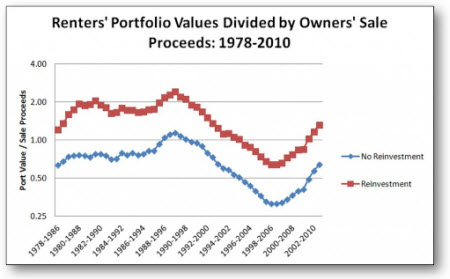3 tips for boosting home's appeal this Spring:
- Decorative pot with plants, twigs or other decorative elements on front steps
-Smell-test your house. This isn't about baking cookies before a showing. Does your hall closet smell like the vacuum cleaner? How does your oven smell? Garbage disposal?
-Warm up with the right lights. If you have put in CFL bulbs and the place looks cold or flat, warm up with CFLs rated with Kelvins between 2400 to 2700, for a yellowish light. Those with higher Kelvins look cold.
TIPS IN CHICAGO MAGAZINE COVER STORY:
FAST LANE (SELL THIS YEAR)
Boost your home's energy efficiency (You can then tell buyers the house will cost them less to operate than it cost you)
-Programmable thermostat
-Wrap your water heater in insulation
-Install a low-flow showerhead
(all cost $100 or less) Refresh, don't remodel
(Make selected changes, not whole-room fixes) Kitchen:
-New countertops
-Refinish or paint existing cabinets
-Replace sub-par appliances-but don't go for the super high-end replacements. Bath:
-New toilet seats, towel racks, light fixtures, Curb Appeal:
(What will people see from your front steps, where they're likely to wait while real estate agent opens the door?)
-Get trees and shrubs trimmed.
-Use a weed and feed for spring greenup
-Paint or refinish the front door
But don't make it look like a high-maintenance yard; buyers won't want to take on the cost. MEDIUM LANE (SELL IN A FEW YEARS)
Stay up on maintenance of roof, siding, and big mechanicals (furnace, air conditioner)
-If furnace or water heater will need replacing at sale time, do it now or soon, not at sale time, when you're going to have other expenses
-Pay attention to the roof: if you let it go so long that it needs a tearoff, that's 3 times the cost of a new layer.
-Expand into space you have Basement, attic and back yard.
-Cheaper to work with the footprint you have than to add new structure Look at local norms and comps. If what everybody has but you don't is a basement family room, then make that a priority to make yours competitive
-Make the back yard living space. Invest in a deck, a grilling station, built-in seating. (But don't get the high-maintenance items like a hot tub or waterfall)
Splurge A LITTLE on the kitchen and baths
(The value difference between a $5,000 fridge and a $1,500 fridge at sale time is zero_ Many buyers will want to make their own choices later, so do mid-priced upgrades.
In a bathroom, new shower doors, a pedestal sink or flooring can upgrade the room without a huge investment.
SLOW LANE (STAYING FOR THE LONG TERM)
Large-scale energy efficiency improvements: solar hot water, geothermal heat are big investments that pay off over a long span of years-you reap the benefit rather than passing it to the buyer Do that big kitchen renovation now: it's for you, not for an eventual buyer, so get the kitchen the way you want it (if you can afford to) Reconfigure your space to make it work for you long-term
need a mud room, workout room, computer work room? How can spaces be re-apportioned or re-assigned? Small additions-'bumpouts'-may help. Plan for aging in place
Rather than retrofit the whole house all at once when need strikes, gradually make changes Removal of barriers in doorways and shower doors, grab bars, low-set sinks, improved kitchen lighting.
Consider creating a first-floor master if you don't have one-or at least add a first-floor full bath.









![gty_warren_buffett_ll_110815_wg[1]](http://www.kcmblog.com/wp-content/uploads/2012/01/gty_warren_buffett_ll_110815_wg1-300x168.jpg) Warren
Buffet is seen by many as the greatest investor of our time. When he
speaks, people listen. Like anyone else in his position of influence, he
is criticized by some for using his bullhorn to promote his own
business agendas at times. That makes it very interesting when we
occasionally learn of how he privately advises those closest to him.
Warren
Buffet is seen by many as the greatest investor of our time. When he
speaks, people listen. Like anyone else in his position of influence, he
is criticized by some for using his bullhorn to promote his own
business agendas at times. That makes it very interesting when we
occasionally learn of how he privately advises those closest to him.